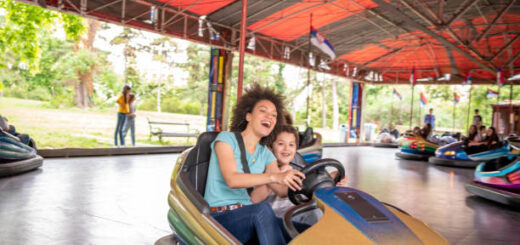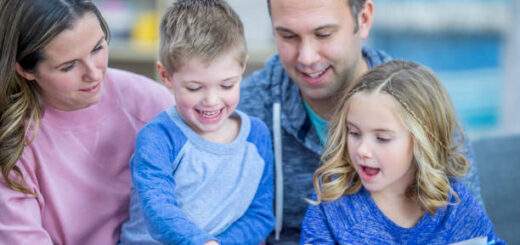How to build children’s resilience, and your own, amid coronavirus unknowns
The world is upside-down at present because of the coronavirus. Although there are early indications of a possible re-opening for trial-and-error in the aftermath of the quarantine, we are unable to — and certainly shouldn’t minimize the ongoing uncertainties and challenges our kids face. Some have suggested that discussing with youngsters about the COVID-19 outbreak offers an opportunity to build resilience.
Psychologists define resilience as ” how well a person can adapt to events in their lives … when faced with a tragedy, natural disaster, health concern, relationship, work or school problem.”
Suppose we wish for our children and teens to emerge from the current disaster more resilient. In that case, we must recognize that resilience isn’t inevitable from exposure to extreme hardship. We all know people who flourish in harsh conditions and fall into trouble.
What could we be doing to tilt the balance towards resilience?
Careful, sensitive reactions
Parents can aid in creating the right conditions for building resilience in their homes. Children are stronger and more able to handle life’s challenges when they feel valued, cared for, loved, and supported. More than ever, children must experience their families as loving, compassionate, and flexible to their requirements.
We can communicate this with words; however, here are four steps parents can use to signal that everything is under control.
Try to create a stable home environment.
Notably, in the current period of continuous change, children and teens gain when we organize our home environments to be consistent, organized, fair, and predictable.
Physical spaces that are tidy and well-organized convey a sense of calm and order. Everyday routines provide children with an impression of security and stability. Regular rules can bring order to children’s lives and counter the discord and chaos surrounding so much of the world.
The organization doesn’t have to extend to the whole house. It is enough to concentrate on keeping the sleeping and eating areas neat. It is also possible to make routines as easy as setting a time for school work, a brief walk following dinner every evening, or a movie night for the family every Friday. Rules may also be adapted to this time frame and work best when they provide evident benefits for all.
Concentrate on the positive aspects of your life.
Parents can also be intentional about modeling and promoting habits that support resilience.
Positivity is an essential aspect that helps build resilience in catastrophes’ aftermath. Positive thinking doesn’t mean putting your head in the sand and assuming everything is going well. Instead, it’s about having a well-balanced and precise knowledge of the world and making an effort to be focused on positive things happening.
It reminds us that if no eggs are in the store, Chickens will lay eggs in the coming days. It’s about searching for and sharing good news stories. Being positive and encouraging to our children can help them learn this habit and support our mental health.
Believe in your abilities.
Self-efficacy is a different factor that can contribute to resilience. Self-efficacy refers to our confidence in our capabilities and, in particular, the capacity to be successful when faced with challenges. It is possible to help children build a sense of self-efficacy to cope with the current stress by assisting them to face new challenges and be successful.
You could help children to instruct their grandparents to communicate using video chat. You can also celebrate your child’s achievement when he finds a way to get Pizza delivered right to your door without violating the two-meter social distancing limit.
Young people also acquire self-confidence managing by watching them perform the same. If the scarcity of bread options in the supermarket inspires you to learn the art of making bread, this is the perfect time to start. Don’t be worried when it proves to be more complex than a concrete block. Children learn from watching adults who fail, but they take their lessons and try again.
Be sure to take proper care of yourself.
If these strategies seem daunting, then children and teenagers gain from one of them. Parents can have a positive impact by deciding on a manageable and appealing system. Whichever approach parents choose to take, we’re more likely to be successful by implementing strategies that will improve our well-being.
Remembering that children are more successful when their parents are healthy may be helpful. With the current state of affairs, there is a greater need than ever to put aside time for the most tried-and-tested mental health methods, such as paying attention to our diet and exercise each day, switching cellphones away in our bedrooms, talking to a person or contacting an expert in mental health.
We have all been taught by pilots on planes to put on an oxygen mask first in the case of an emergency because, without them, we’re in no position to assist others. We can legally call this the definition of an emergency.



